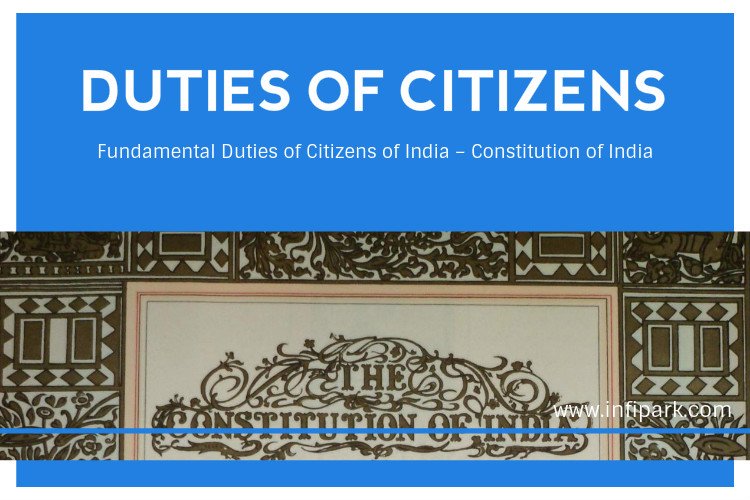The section “Fundamental Duties’ was not a part of the original constitution. These were added to the Constitution much later by the 42nd Amendment in 1976. The fundamental duties were added to the constitution on the recommendations of the Swaran Singh Committee. There were ten fundamental duties at the time of incorporation but the eleventh was inserted by the 86th Amendment in 2002. The idea behind incorporation of fundamental duties was to remind the citizens of the country that they have certain obligations towards the country and society. As the state offers them fundamental rights, it is the fundamental duty of each citizen of India to further national integration and contribute towards a better society.
There is a major difference between the fundamental rights and the fundamental duties. The fundamental duties are non-justifiable, that is no one can be punished in case of their violation or non-compliance. The fundamental duties are defined as the moral obligations of all citizens to help promote a spirit of patriotism and to uphold the unity of India.
It shall be the duty of every citizens of India:
To abide by the Constitution and respect its ideals and institutions, the National Flag and the National Anthem;
To cherish and follow the noble ideals which inspired our national struggle for freedom;
To uphold and protect the sovereignty, unity and integrity of India;
To defend the country and render national service when called upon to do so;
To promote harmony and the spirit of common brotherhood amongst all the people of India transcending religious, linguistic and regional or sectional diversities; to renounce practices derogatory to the dignity of women;
To value and preserve the rich heritage of our composite culture;
To protect and improve the natural environment including forests, lakes, rivers and wild life, and to have compassion for living creatures;
To develop the scientific temper, humanism and the spirit of inquiry and reform;
To safeguard public property and to abjure violence;
To strive towards excellence in all spheres of individual and collective activity so that the nation constantly rises to higher levels of endeavour and achievement.
To provide opportunities for education by the parent the guardian, to his child, or a ward between the age of 6-14 years as the case may be.











